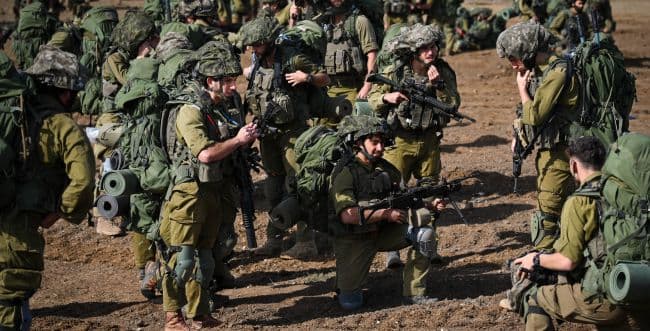Cancelation?
The IDF Fears that the Political Echelon will Cancel the Ground Entry
The IDF's greatest fear now is that the political echelon will cancel the ground maneuver. Regarding the risks of a ground entry, the IDF says: "There will be prices, but this time we will come more deadly, and we will crush before we conquer."

On the 17th day of the war, the IDF is increasingly seeing the need for a ground invasion. Senior officers in the field with the soldiers recruited relay the message to the Prime Minister: "If we want to achieve our goals, we need to take ground action."
When entering a war in Gaza, it can take two weeks to the end of hostilities or even up to half a year, but in the IDF, they say that the goal will be achieved. It won't come without a cost, but the objective cannot be reached through airstrikes alone.
The biggest concern in the IDF is the cancellation of the ground operation. Soldiers in the field constantly say, "Don't stop us," and they have also conveyed this to the Prime Minister, who has visited the area several times in the past two weeks.
Regarding the possibility of a second front in the north, the IDF states: "We are now in strong defense in the north and ready for an attack in the south. The transfer of most of the forces from the south to the north is a matter of a few days."
The risks of entering enemy territory, a senior officer states, will not be like during Operation Protective Edge, where a Golani unit was devastated in an armored personnel carrier. Shujaiya will look like that Golani unit, and Golani's strength will reach its other end. This time, it will be more deadly, and we will crush before conquering.
In the IDF, it is recognized that when Hamas feels pressured, they will start releasing captives gradually. A couple of captives here, a few there. The momentum won't stop because of events like these. It's better for us to engage in negotiations for the return of the captives while putting pressure on them, just 500 meters away. This would be more effective.
So far, the Air Force has targeted over 10,000 objectives and munitions. In the IDF, they say that there wasn't a target that was avoided because of non-combatants, although there were places where they decided on a different form of attack.